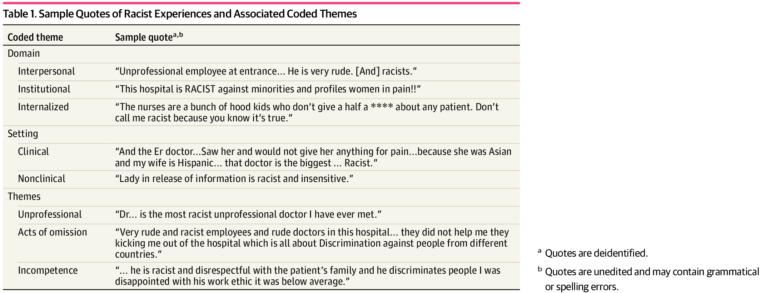Yelp reviews reveal patients’ experiences of racism at hospitals
Earlier this year, Lown Hospitals Index data revealed that many American cities have segregated hospitals, with some caring for a disproportionate number of patients of color and others serving a much whiter patient population. In fact, some of the most and least racially inclusive hospitals were just blocks from each other.
While residential segregation and other historical factors play a role in hospital segregation, it doesn’t tell the whole story. As author Harriet Washington pointed out at a Lown Institute event on racial inclusivity earlier this year, the choices that people of color make about where to seek hospital care are often impacted by their prior experiences in the health care system.
“Many people who would choose not to come to a health care system are making that choice for logical reasons. Who would choose to go to an institution when they know their chances of being rejected for drug seeking are extremely high?”
Harriet Washington, author of Medical Apartheid
Although they are common, patients’ experiences of racial bias don’t always show up on hospital patient surveys. In a Boston Globe Spotlight report from 2017, a Black patient shared her experience of feeling unwelcome at her visit to Massachusetts General Hospital. MGH responded that their “hospital surveys show Black and Hispanic patients feel they are treated the same as whites.”
Hospital surveys do not always show patients’ experiences of racism, but what about consumer reviews? A recent study from researchers at the University of Pennsylvania finds that Yelp (a website best known for rates and reviews of restaurants and hotels) can also be a source of information about patients’ experiences at hospitals. Researchers looked at more than 90,000 reviews of hospitals between January 2010 and January 2020. They found that racism was explicitly mentioned in 260 reviews of 190 hospitals across 33 states.
Researchers were able to use this anonymous qualitative information to find different ways in which racism manifests in hospital patients’ experiences. They found that patients had experiences of racism in both clinical settings, with doctors and nurses, as well as non-clinical settings, with security and reception staff. Patients shared specific interpersonal experiences of racism, generally involving nurses or doctors, but also experiences of racism by the institution in general.
The most common themes within the reviews were patients reporting disrespect or unprofessionalism by hospital staff, and “acts of omission” — not being helped or denied care by the hospital. The data also showed instances of patients using racist language toward hospital staff (usually nurses), demonstrating that the harm from racism comes from all directions.

This study reveals the power of data from websites like Yelp to unearth what hospital performance metrics have not been able to do.
“It’s powerful because it’s anonymous — it reduces the fear of reporting, it’s familiar, and it’s open-ended,” said Dr. Jason Tong, lead author of the study, in the Philadelphia Inquirer. “We as health care leaders should turn to consumers more often,” he said.
